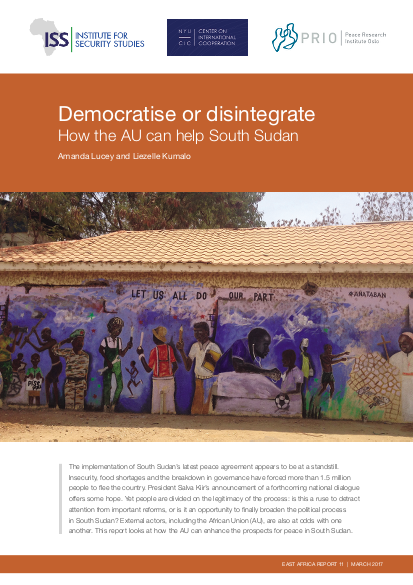East Africa Report 11

South Sudan’s latest peace agreement, the Agreement for the Resolution of the Confliict in South Sudan (ARCISS), has been violated repeatedly and the nature of the conflict is changing. What can external actors do to prevent the situation from disintegrating further?
This report looks specifically at the role that African actors – the African Union (AU), the subregional Intergovernmental Authority on Development (IGAD) and African member states – can play in enhancing sustainable peace in South Sudan. Much has already been written on the history of South Sudan and on developments since the most recent eruptions of violence. There have also been many critiques of the previous peace processes in the country. This report thus assumes some knowledge of South Sudan and is forward looking.
It is part of a broader project called ‘Enhancing African responses to peacebuilding’ by three partner organisations – the Institute for Security Studies (ISS), the Peace Research Institute Oslo (PRIO) and New York University’s Center on International Cooperation (CIC). It is based on research carried out from 9–17 February 2017 in Addis Ababa, Ethiopia and Juba, South Sudan with 28 institutions.
The report first outlines the background to the current situation in South Sudan. It then goes on to examine past engagements by African actors in building sustainable peace in South Sudan. It also describes their engagements with the broader international community. It then examines the latest important developments in South Sudan, namely the implementation of the peace agreement, the deployment of the Regional Protection Force (RPF), the national dialogue and the state of the economy. The report offers practical policy recommendations for the way forward.